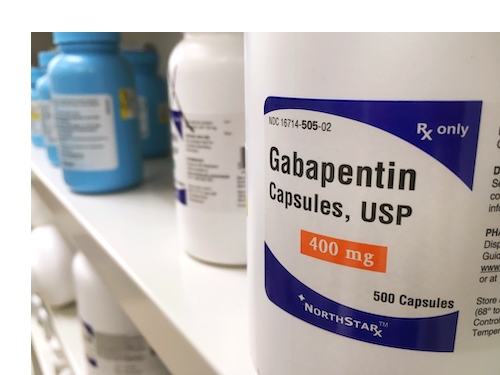Gabapentin is a name you’ve probably heard a lot lately. Its use has been going up year after year. Now its high rates of abuse are causing governments to notice. Different states have begun discussing and passing laws to control it.
So is gabapentin a controlled substance?
The answer is: it depends. First, learn about the drug, its dangers and its role in the opioid epidemic. Then you’ll understand why its legal status is constantly evolving.
What Is Gabapentin?
Doctors use this drug to treat nerve problems. It helps with things like seizures and migraines by relieving pain. Sometimes doctors also prescribe it off label for things like anxiety and bipolar disorder.
Gabapentin is a very common drug in the US. In 2017, doctors prescribed it more than 44 million times. That made it the 11th most prescribed medication that year.
Of course, its pervasiveness means there’s a lot of potential for abuse. It’s becoming more popular as a recreational drug. On the street, you may hear it called “gabbies.”
Dangers of Gabapentin
Like any drug, gabapentin has side effects. You can experience them even when you use the medication correctly. Minor side effects include dizziness, drowsiness and tremors. Some people might also experience swelling and sexual dysfunction. In rare cases, the drug can even cause kidney problems and suicidal thoughts.
These side effects are more likely if you abuse the drug. They can also be a lot worse.
Abuse and addiction
One of the biggest dangers of gabapentin is its potential for abuse. In fact, around 22% of people checking into rehab said they’d abused it at some point.
People who abuse gabbies also risk addiction. That could mean dependence and withdrawals when they stop taking the drug. These can start as soon as 12 hours after stopping and include upset stomach, confusion and sweating. In bad cases, withdrawal can cause seizures.
Overdose
Abusing gabapentin can mean you take too much. This could cause a life-threatening overdose. If you use gabbies with other drugs or alcohol, it’s easier to overdose. It’s also more likely to kill you.
Gabapentin and the Opioid Epidemic
Gabapentin is not an opioid. However, it combines with opioids to cause a more intense high. Both drugs slow down the brain. They cause drowsiness and relaxation. They both also relieve pain. That’s why many people who abuse drugs like fentanyl or heroin have started abusing gabbies too.
Opioids are dangerous drugs. They’re addictive and can cause deadly overdoses. Gabapentin makes these things even worse. Specifically, it increases the risk of slowed breathing. This can easily lead to death.
Where Is Gabapentin a Controlled Substance?
Right now, gabbies aren’t controlled at the federal level. However, more people are abusing them and learning the risks. Plus, it’s started contributing to the nation’s opioid epidemic.
As a result, states have started listing gabapentin as a “controlled substance.” This means heavy penalties for having the drug without a prescription. It also means the government monitors prescriptions and controls things like refills.
As of 2020, gabapentin was a controlled substance in these states:
- Virginia
- Kentucky
- Tennessee
- West Virginia
- Michigan
- Ohio
- Wyoming
- Minnesota
- Massachusetts
- North Dakota
- Nebraska
- Kansas
As the problem grows, more states are considering new laws. Controlling prescriptions doesn’t just mean less gabapentin abuse. It’s a way for states to fight the opioid crisis.
Signs of Gabapentin Abuse
Since gabbies are becoming a more common drug, you may be worried a loved one is abusing them. The following signs could mean a problem:
- Refilling prescriptions sooner than necessary
- Stealing pills from others
- Social isolation
- Mixing gabapentin with drugs or alcohol
- Changes in sleep or eating habits
- Constant sedation
- Unexplained money problems
Treatment for Gabapentin Abuse
If you or a loved one is suffering from gabapentin abuse, you probably have a lot of questions. It’s a new drug, and many people aren’t aware of the risks. Luckily, there are caring professionals ready to help you all along the way. Search through thousands of rehabs today to find one local to you.
Treatment for gabapentin abuse is similar to a lot of other drugs. With certain lifestyle changes, you can start your recovery and take your life back. There is always hope.
Sources:
- The Top 300 of 2020
- Neurontin Drug Label Information
- Gabapentin: Abuse, Dependence, and Withdrawal
- Gabapentin use, abuse, and the US opioid epidemic: the case for reclassification as a controlled substance and the need for pharmacovigilance


